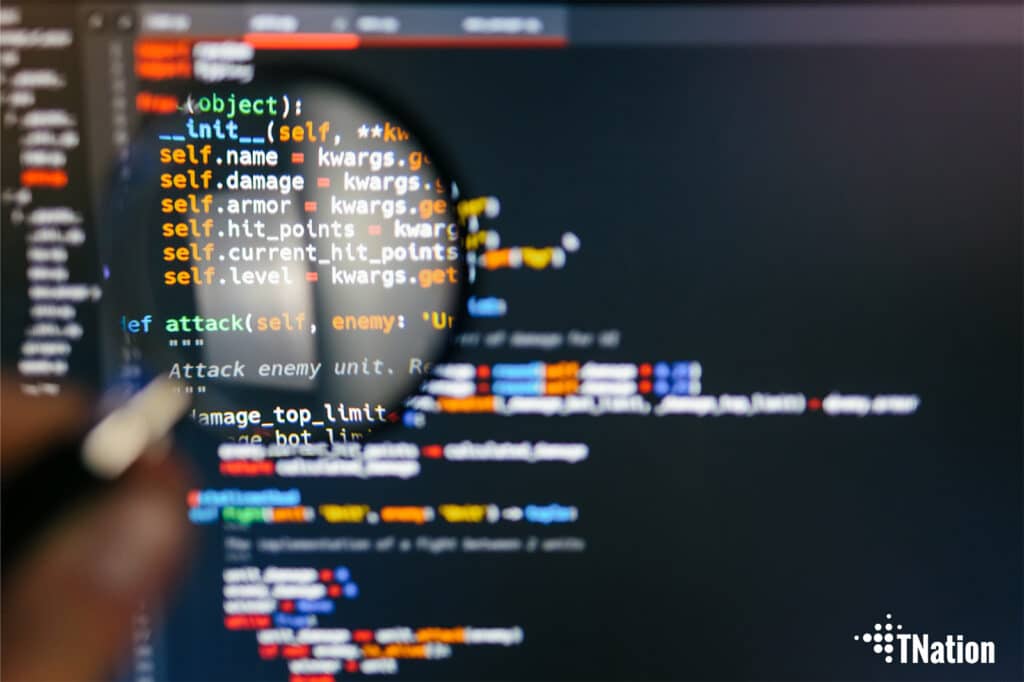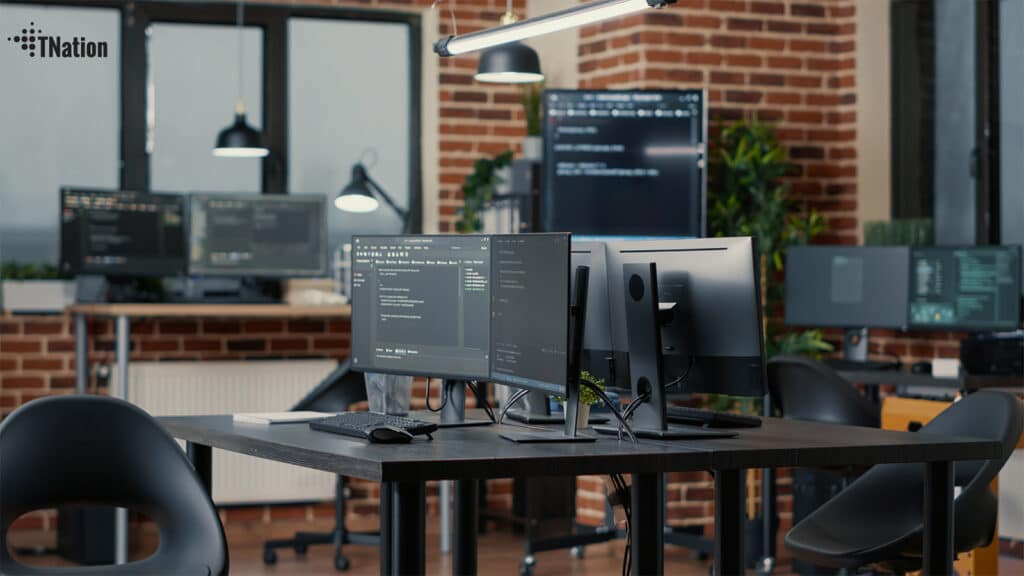Outsourcing has become a norm in the tech industry, and it’s not hard to see why. It can help companies reduce costs, increase efficiency, and access specialized expertise. However, if you want to outsource software development, things become different. The first thing many companies think of is who owns the software code developed by an outsourcing company.
Is it the client who paid for it or the outsourcing company that wrote it? This debate has sparked heated discussions and legal battles, leaving many companies unsure of their rights and responsibilities. In this article, we will demystify the ownership debate and provide you with a c/blog/outsourcing-software-development-why-when-where/lear understanding of software code ownership in outsourcing.
What is Ownership of the Copyright in Software Code?
At some point, many organizations have read or heard about the bitter experience of some businesses when outsourcing their software. With this in mind, this scenario may be familiar to some: You need software that will handle problem X.
Your in-house team comes up with the necessary features to address these issues. You find the company, and they develop the software code for you; you pay for the development and ongoing maintenance. However, after some point, you realize you do not own the software in question entirely. But not all software development companies are the same, and here we will discuss the matter of software code ownership.
What is Software Ownership?
Ownership of the copyright in software code controls the ability to copy, distribute, sell, or modify the code and generally possess the ability to profit from the code. In simplest terms, you want to be able to do whatever you want with the software.
On the other hand, software, or any other intellectual property, is treated as the author’s work. In other words, the person who wrote the code entirely is the software’s author. That means the programmer. However, depending on the agreement with the client or the programmer’s employment contract, the software code’s ownership can be different. Hence, let’s take a look at what licensing software means.
What is Software Licensing?
Licensing copyright, in this case, software practically means extracting and granting only certain powers from a more comprehensive set of rights belonging to the copyright holder. As a rule, the holder is the creator of the copyrighted work. However, this is not always the case. There are legally binding documents, such as employment contracts or agreements on outsourcing software development and working with another company, that can change the complexion of the ownership.
Software Created in the Employment Relationship
The employer is the permanent holder of all exclusive property rights to the software (copyright) created in the employment relationship unless otherwise specified in the contract. The programmer will have the right to particular compensation for the completed work only if stipulated in the agreement, which should be considered when concluding the employment contract.
Software Created based on Work-Made-For-Hire Agreement
If the software is created on the basis of work-made-for-hire, the customer acquires all rights to use the software unless otherwise stipulated by the contract. In essence, many clients clearly state the agreement’s terms before developing any software.
Example of Software Licensing
To put things into context, you might have a clear image of what a software code license is if you look at real-life examples. For instance, you want an operating system that will allow you to work on your projects. That means turning to companies that sell their software licenses to their users. By granting a software license, the owner of the software grants you, the user, specific rights to the software, but without transferring the ownership right itself.
For example, a user who buys a license for the operating system is purchasing the right to use one or more copies of the software according to the terms set by the owner. Therefore, the user’s authorization is limited only to the rights the owner has given – the use and reproduction (using the software on multiple devices). But the right of ownership is still retained by the owner. In this way, the software belonging to one legal entity can be used by a wide range of subjects obliged to comply with precisely defined conditions.
In addition, other rights can be granted to a company that wants to use someone else’s software, such as:
- Requests to put the software into circulation, which includes providing copies of the software to third parties
- The right to sub-license the software, which allows the licensee to assign certain rights to the software to its customers or users
- Rights to modify the software code or create derivative works from the software, which would include, for example, creating a new version of the software
Understanding Ownership Agreements and Contracts in Outsourcing
To avoid confusion and disputes over code ownership and who has rights over what, it’s essential to have an explicit ownership agreement in place before the start of a project. Why is this ownership clause necessary in outsourcing? Because it avoids any potential misunderstandings between you and your outsourcing partner. That means that the ownership clause protects the interest of both parties in the agreement. Ultimately, no respectful outsourcing company wants to have legal issues with its clients.
The Role of Software Licensing Agreements in Outsourcing
Software code licensing agreements are critical in determining software ownership in corporate settings. These agreements define the terms and conditions under which the company can use the software. Otherwise, you might have perfect software developed by an outsourcing company, and you do not have a full license to use it as you wish. In some cases, that can be a big challenge for many companies.
The rule of thumb is that the developer owns the rights to the software. However, many outsourcing companies are not willing to have legal issues with their clients due to this fact. This is why many software companies will have an employment contract stating that the developer is paid for his work and contributions and that the company they work for is the software owner. This makes it easy for companies to transfer ownership to their clients when signing the agreement.
This type of agreement should outline the ownership model, specific rights, and responsibilities of each party in the contract. That includes limitations, if there are any, in using the code.
However, in some cases, a client is content to allow the developer or software company to retain ownership rights while having the license to use the software. It is a cost-effective solution for some businesses to develop software, as ownership rights increase the development price.
Copyright laws may vary in different countries, and some do not even have copyright protection. That is why it’s essential to have a lawyer review the ownership agreement to ensure that it is legally sound and protects the interests of both parties.
What Happens When Software Ownership is Unclear?
When software code ownership is unclear, it can lead to disputes and legal challenges. Sometimes, the parties involved may need to court to resolve the issue. This can be costly and time-consuming and have severe implications for business operations.
Most cases happen between freelance developers and a business commissioning the software. In such cases, especially when no agreement is in effect, copyright may be established by an implied term. In most cases, the law will entitle the paying company to use the software for mutual engagement. In simple terms, they will have a commercial license.
On the other hand, it may rule that the company who ordered the software can use it for purposes stated before the engagement with the developer started. The law also considers another aspect: the amount the business paid the developer. If the price is lower than regular, then it may rule that business has limited rights over the software.
To avoid these problems, companies must establish clear policies and procedures for managing their software assets. This includes developing a software ownership policy that outlines the company’s position on software ownership and clarifies the rights and responsibilities of employees and contractors within the agreement.
Why Ownership Matters in Outsourcing
Because of the above reasons, code ownership has become a complex issue that requires careful consideration from clients and outsourcing companies. The request for software code can have significant implications for intellectual property rights, licensing agreements, and future development.
At the heart of the ownership debate is the question of who has the legal rights to the software. In most cases, clients assume that they automatically own the code developed by outsourcing companies because they paid for it. However, this is not always the case, and the ownership of software code can often be more complex than it appears.
Code ownership is critical for clients because it determines who has the right to use, modify, distribute, and sell the code. If the client does not own the code, they may have limited control over its use, leading to legal disputes and financial losses. In the same manner, outsourcing companies do not benefit from delaying their business operations due to misunderstanding, which was not clarified within the agreement.
Conclusion – Finding the Right Ownership Model for Your Outsourcing Needs
Software ownership can be a complex issue, particularly in corporate settings where multiple parties may have contributed to the creation or purchase of the software. However, by establishing clear policies and procedures for managing software assets, companies can reduce the risk of disputes and ensure they correctly work their software assets.
In this article, we have explored the legal framework surrounding software code ownership, the different types of software ownership, and the steps businesses can take to protect their software assets. Understanding the full extent of software ownership is critical to the success of your business. By following best practices for managing software ownership, you can ensure that your company appropriately manages its software assets and avoids potential legal disputes.
For expert software development services in Belgrade, turn to Tnation. Our team has the experience and expertise to help your business succeed in today’s digital landscape.


